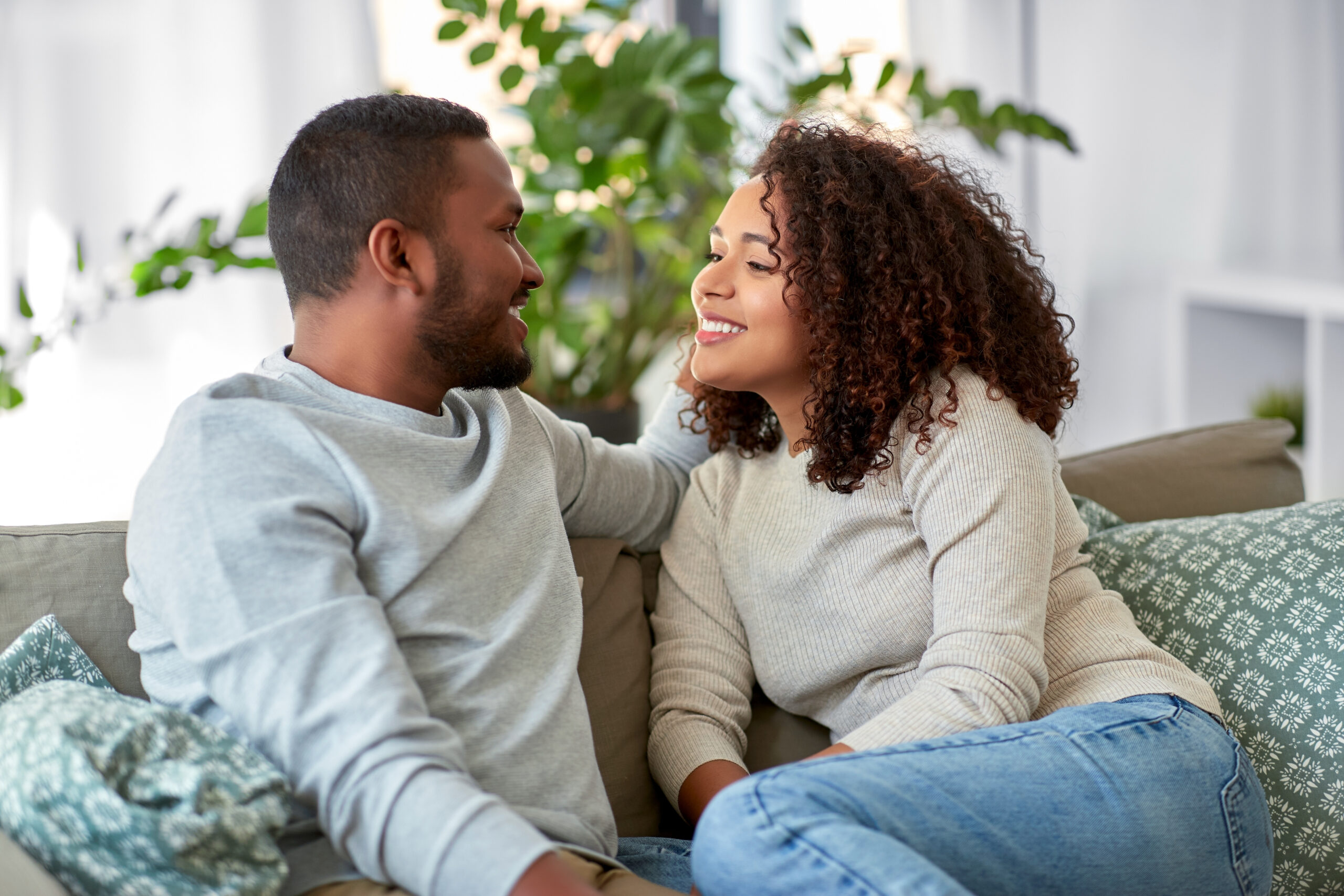A vasectomy is a significant decision for many couples, often involving both physical and emotional considerations. While much of the attention is given to the medical aspects of the procedure, it’s equally important to explore how a vasectomy might impact a partner emotionally and psychologically. In this post, we will discuss what to expect after a vasectomy. We will explore common concerns, misconceptions, and the potential emotional reactions your partner may experience after a vasectomy. We will also discuss how open communication and mutual support can strengthen your relationship during this time.
Emotional Reactions Post-Vasectomy
The emotional reactions that a partner may experience post-vasectomy can vary widely. It’s essential to recognize that these responses are often shaped by individual circumstances, relationship dynamics, and personal perspectives on family planning.
For some partners, the decision to undergo a vasectomy may bring a sense of relief. After years of worrying about unintended pregnancies or navigating other birth control methods, the permanence of a vasectomy can provide peace of mind. This feeling of security may even enhance a couple’s intimacy, as they no longer have to worry about contraceptive mishaps.
On the other hand, some partners may experience anxiety or concern about the permanence of the decision. The realization that a vasectomy is, in most cases, irreversible may provoke second thoughts or doubts. This emotional response is not uncommon, especially if the partner had previously considered having more children or is unsure about the long-term implications of the procedure.
In some cases, partners may also feel grief or loss, particularly if they are grappling with the idea of closing the chapter on having children. These emotions may be compounded by societal or familial pressures regarding traditional family roles. It is important to acknowledge these feelings as valid and to provide space for your partner to express them openly.
Ultimately, emotional responses after a vasectomy are deeply personal and can be influenced by numerous factors. The key to navigating these emotions successfully is understanding and supporting one another through the process.
Common Concerns
Many partners worry about how a vasectomy might affect their relationship, particularly in areas related to sexual desire, intimacy, and overall relationship dynamics. These concerns are valid but often rooted in misconceptions.
One of the most common fears is that a vasectomy might lead to a decrease in sexual desire or performance. Some worry that the procedure could negatively impact hormonal levels, which might, in turn, reduce libido or affect intimacy. However, this is a misconception. A vasectomy does not alter hormone production, specifically testosterone, which is responsible for sexual drive. The procedure only blocks the sperm-carrying tubes, meaning it doesn’t interfere with sexual performance, desire, or pleasure.
Another concern is the potential shift in relationship dynamics after the procedure. Partners may wonder if not being able to conceive could affect their emotional connection or create an imbalance in the relationship. In many cases, these worries are unfounded, as a vasectomy does not change a couple’s emotional bond. In fact, many couples report that their relationships become more fulfilling post-vasectomy due to reduced stress about contraception.
It’s also worth noting that, after the recovery period, a vasectomy does not physically affect intercourse. Partners should feel reassured that they can resume normal sexual activity without significant changes.
Communication is Key
Open and honest communication plays a vital role in ensuring that both partners feel comfortable and supported before and after a vasectomy. This is a life-changing decision, and both parties need to feel heard and valued throughout the process.
Before the procedure, it is important to have candid discussions about your reasons for choosing a vasectomy. Couples should explore questions like: Are we both ready to end our fertility journey? What does this decision mean for our future together? Addressing any fears or doubts beforehand can help create a sense of mutual understanding and ease any anxiety.
After the procedure, continuing these open lines of communication is just as important. Some partners may feel uncertain or emotional after the vasectomy, and being able to express these feelings without judgment is essential. Talking about how each person is coping with the change, what concerns or hopes they have, and what adjustments might be needed for the relationship can strengthen the bond between partners.
Listening and validating each other’s experiences will make the transition smoother, and it will help both partners feel more secure in their decision.
Supporting Each Other
The period immediately following a vasectomy is a critical time for both physical and emotional recovery. While the physical recovery is relatively straightforward, the emotional side requires continued attention and support.
As the partner who underwent the procedure, it’s important to communicate your needs during the recovery period. Whether it’s physical comfort, reassurance, or simply some time to rest, being clear about what you need will help your partner understand how best to support you. On the other hand, the partner offering support should be patient and understanding, as recovery may take a few days to a week.
Maintaining emotional intimacy during this time is equally important. You might not be able to resume sexual activity right away, but finding other ways to connect emotionally and physically can help keep your relationship strong. Consider small gestures like spending quality time together, expressing gratitude, or engaging in affectionate touch that doesn’t necessarily lead to intercourse. These efforts will help reinforce your emotional bond while the physical aspects of the relationship are temporarily on hold.
Once the recovery period is over, it’s essential to resume your regular emotional and physical intimacy. For many couples, the absence of worry about unintended pregnancies can actually enhance intimacy, allowing for a more relaxed and enjoyable connection.
Long-Term Outlook
For most couples, the long-term outlook after a vasectomy is overwhelmingly positive. In fact, many find that their relationship remains strong or even strengthens after the procedure. The elimination of the worry about unintended pregnancies can bring about a newfound sense of freedom, leading to more open and spontaneous intimacy.
Additionally, without the need to focus on contraception, couples often experience an increase in emotional closeness. The decision to undergo a vasectomy is a shared one, often made after thoughtful consideration of each partner’s desires and long-term goals. This level of mutual commitment can deepen the connection between partners, creating a stronger foundation for the future.
One of the key benefits of a vasectomy is the sense of security and peace of mind it provides. Knowing that the risk of unintended pregnancy has been removed allows couples to enjoy their sexual relationship without the stress of contraceptive failure. Over time, this freedom can enhance the overall quality of the relationship.
When to Seek Professional Help
While most couples adapt well to the changes following a vasectomy, there may be instances where emotional distress or relationship strain persists. If either partner experiences prolonged anxiety, sadness, or regret related to the decision, it may be helpful to seek professional support.
Speaking with a therapist or counselor who specializes in relationship issues can provide valuable insights and coping strategies. Couples may benefit from counseling sessions that focus on improving communication, addressing unresolved concerns, and ensuring both partners feel emotionally supported. In some cases, speaking with a healthcare provider may also be beneficial, particularly if there are lingering concerns about the physical or sexual impacts of the procedure.
It’s important to remember that asking for help is a sign of strength, not weakness. A professional can help couples navigate any challenges they encounter and ensure that both partners feel confident in their decision to undergo a vasectomy.
Navigating the Emotional Journey Together After a Vasectomy
A vasectomy is a significant decision that affects both partners in a relationship. While the procedure itself is straightforward, the emotional and psychological aspects should not be overlooked. Partners may experience a range of feelings, from relief to anxiety, but with open communication and mutual support, these challenges can be overcome.
By focusing on emotional intimacy, addressing concerns, and maintaining honest conversations, most couples find that their relationship remains just as strong—if not stronger—after a vasectomy. For those who encounter difficulties, seeking professional support can help ensure that both partners feel comfortable and supported as they move forward in their lives together. Contact Purely Vasectomies for more information.





